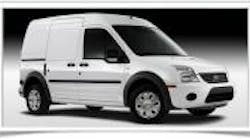Smith Electric Vehicles and its parent company Tanfield Group pulled out of its agreement to supply Ford Motor Co. with battery electric technology to convert the Ford Transit Connect into an all-electric model in the second half of 2010.
The reason: Tanfield doesn’t want the competition. It admitted as much in a press release announcing the move.
In the release, Tanfield stated “it was concerned that the market for electric car-derived vans would become increasingly competitive.” See Tanfield, through Smith Electric Vehicles, recently debuted the electric Smith Newton and according to the release, the company “believes that investing in the existing Smith platforms represents a better use of its financial resources, allowing it to take full advantage of a potentially very sizeable market and to gain market traction more quickly.”
In other words, Smith didn’t want to be supplying a competitor with the technology it was basing its own vehicle on. I don’t necessarily blame them, but sometimes the greater good should prevail.For Ford’s part, it quickly partnered with Azure Dynamics and delivery of the electric Transit Connect should not be delayed. It was, and still is, slated for a debut in the second half of 2010. That’s the good news.
Let’s not cast a cloud over all companies because there are plenty of businesses willing to share their technological developments with any and all competitors because they believe it is the right thing to do. And it’s certainly not wrong for any company to want to keep its proprietary technology in-house.
In the end, the U.S. and Canadian truck market should still see an electric Transit Connect sometime next year, and perhaps with Smith going it alone, there will be viable competition in the electric van market. Let’s hope.





